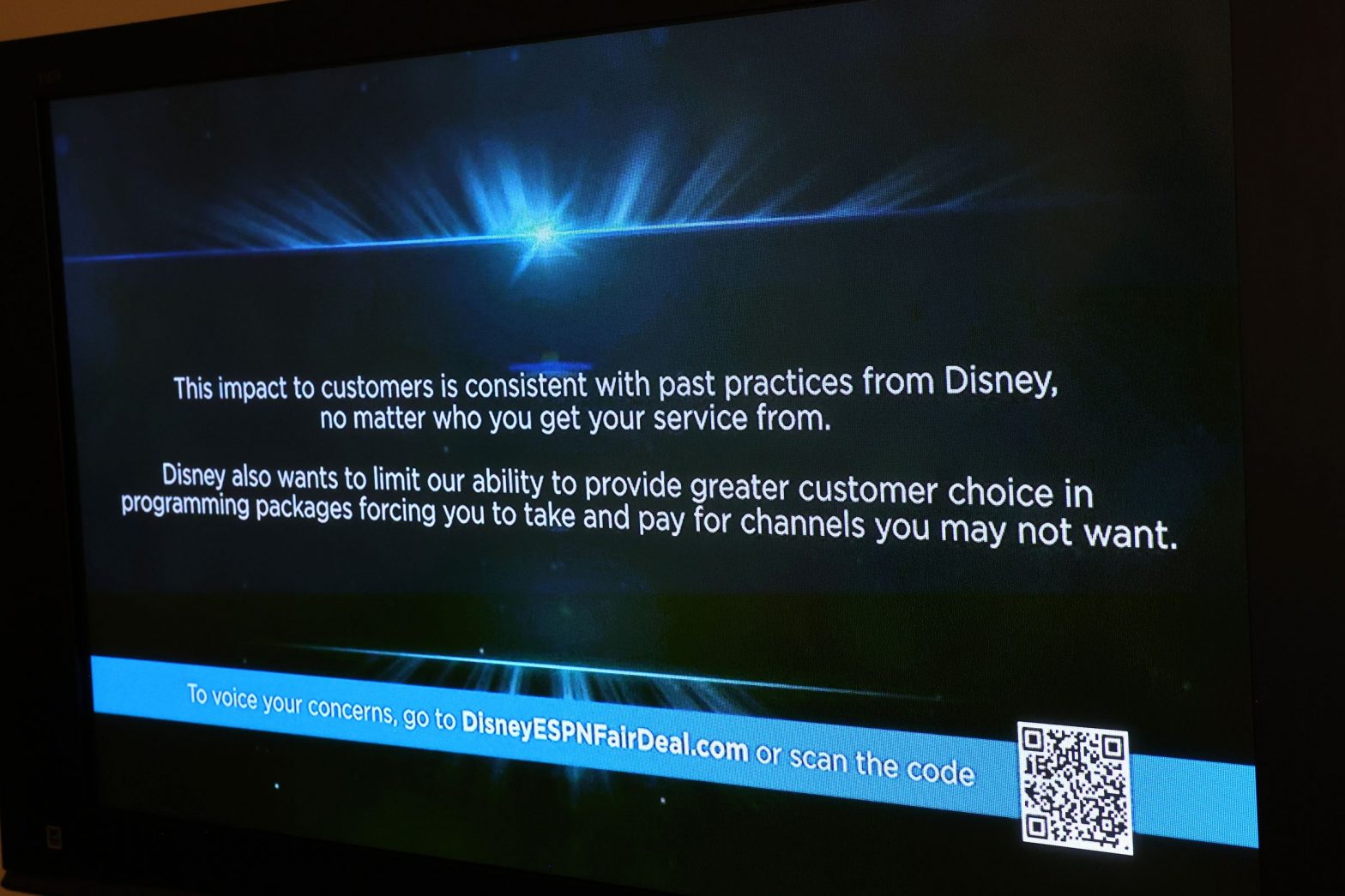/
The FCC is considering new rules that would at least ensure customers get a discount if they lose access to channels while companies try to work out a new deal.
Share this story
:format(webp)/cdn.vox-cdn.com/uploads/chorus_asset/file/24995782/1664042731.jpg)
The US Federal Communications Commission (FCC) has a pair of proposals aimed at dealing with channel blackouts (via Deadline). They follow a recent dispute where millions of Spectrum (Charter Communications) subscribers abruptly lost access to Disney-owned channels such as ABC and ESPN, even forcing a US Open finalist to watch pirate streams of the event he was playing in.
One proposed new rule requires cable and satellite providers to give rebates to customers when there’s a blackout due to failed retransmission agreements with broadcast stations and channel group owners. The other one says Multichannel Video Program Distributors (MVPDs) have to notify the FCC via an online portal before any expected blackouts (ones that last 24 hours or more) due to failed retransmission consent agreements.
The proposals were submitted by Chairwoman Jessica Rosenworcel, who said in a statement, “It’s not right when big companies battle it out and leave viewers without the ability to watch the local news, their favorite show, or the big game… If the screen stays dark, they deserve a refund.”
The Disney / Charter beef lasted two weeks, with the two cutting a deal including new terms for offering streaming channels within the cable package that was completed just in time for Monday Night Football.
As with all proposed rulemaking, there is a period where the agency seeks comment before solidifying them as actual rules. Blackouts have happened over and over again throughout the years — even affecting internet providers like Roku and YouTube TV — as major broadcasting players duked it out over business contracts.
